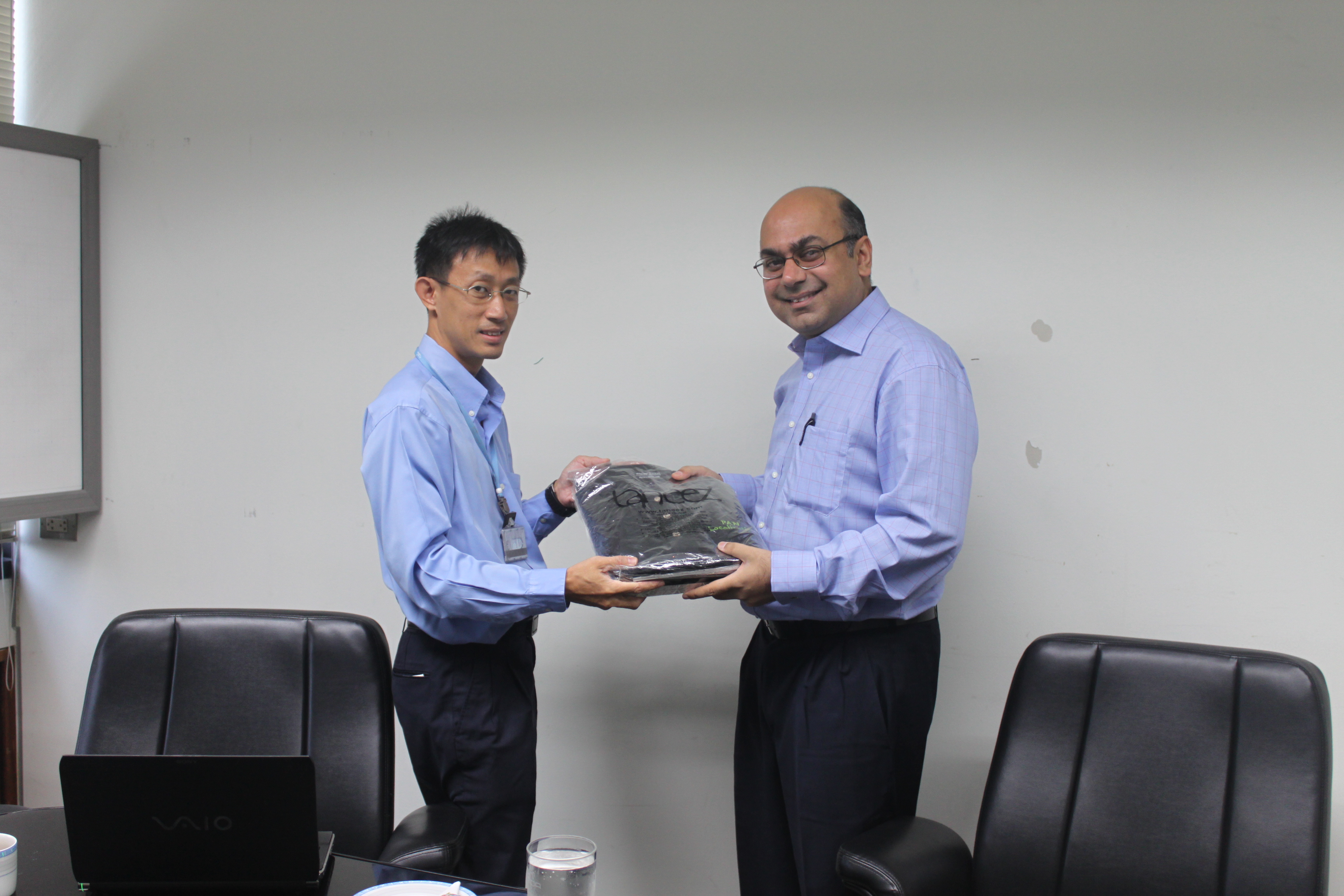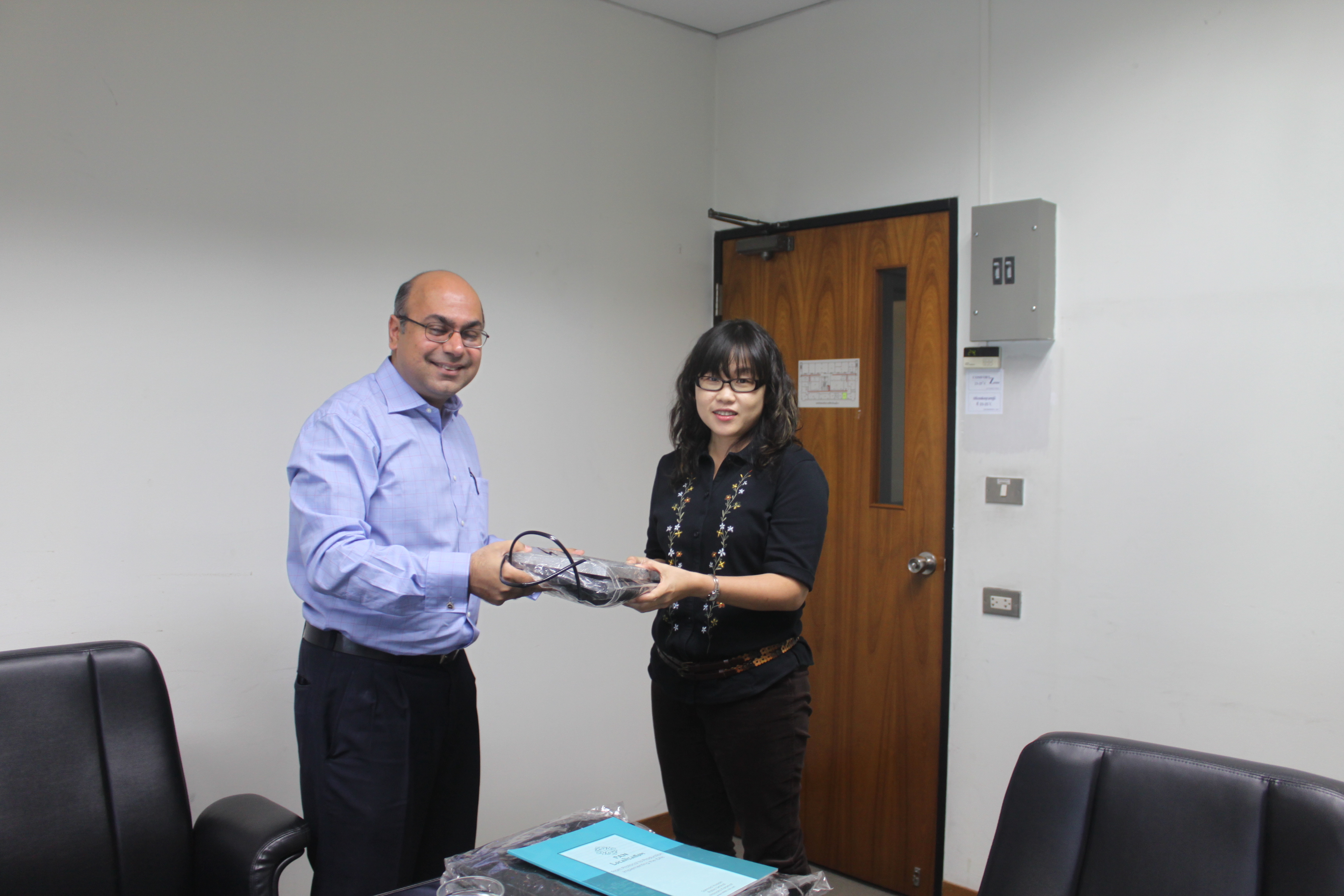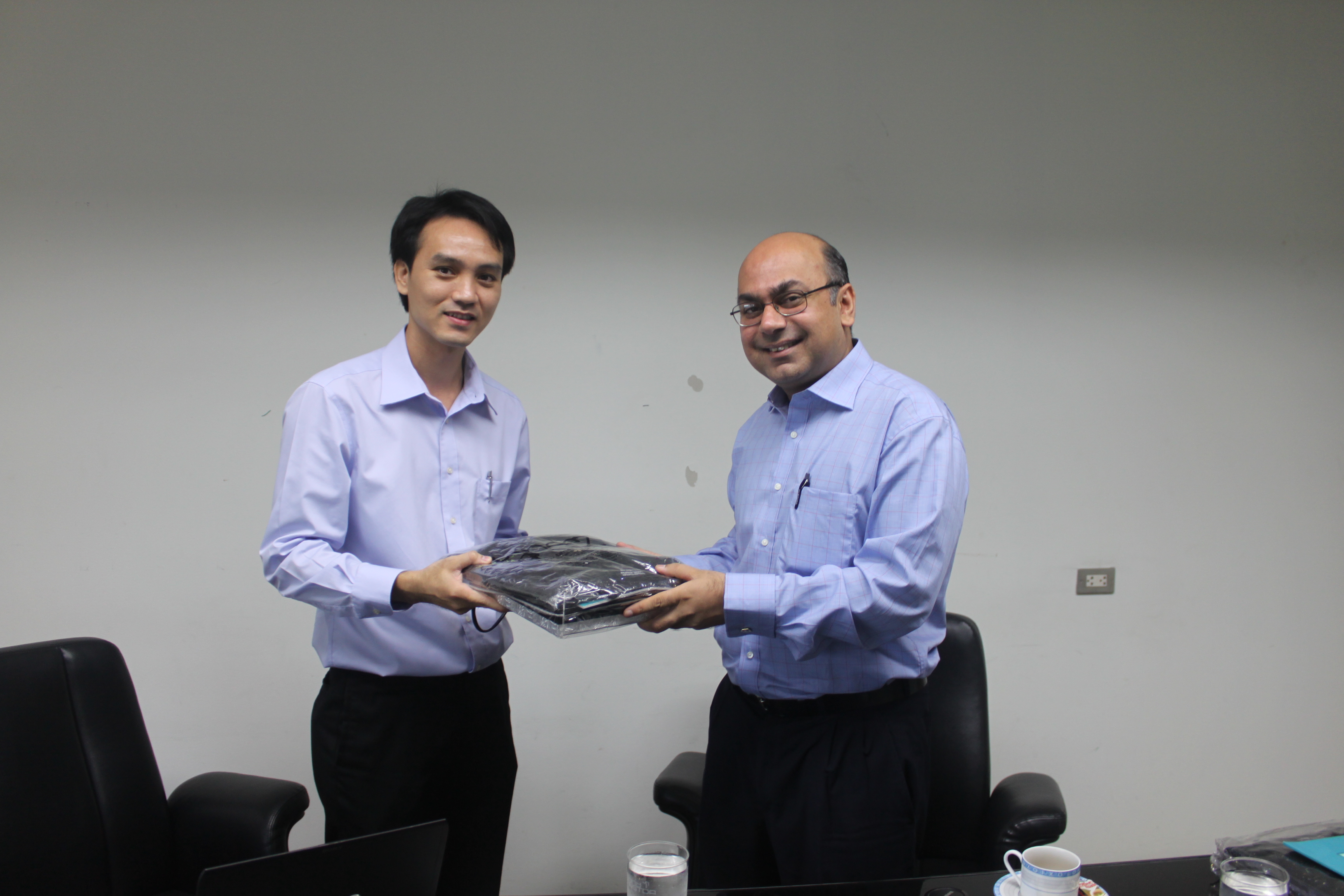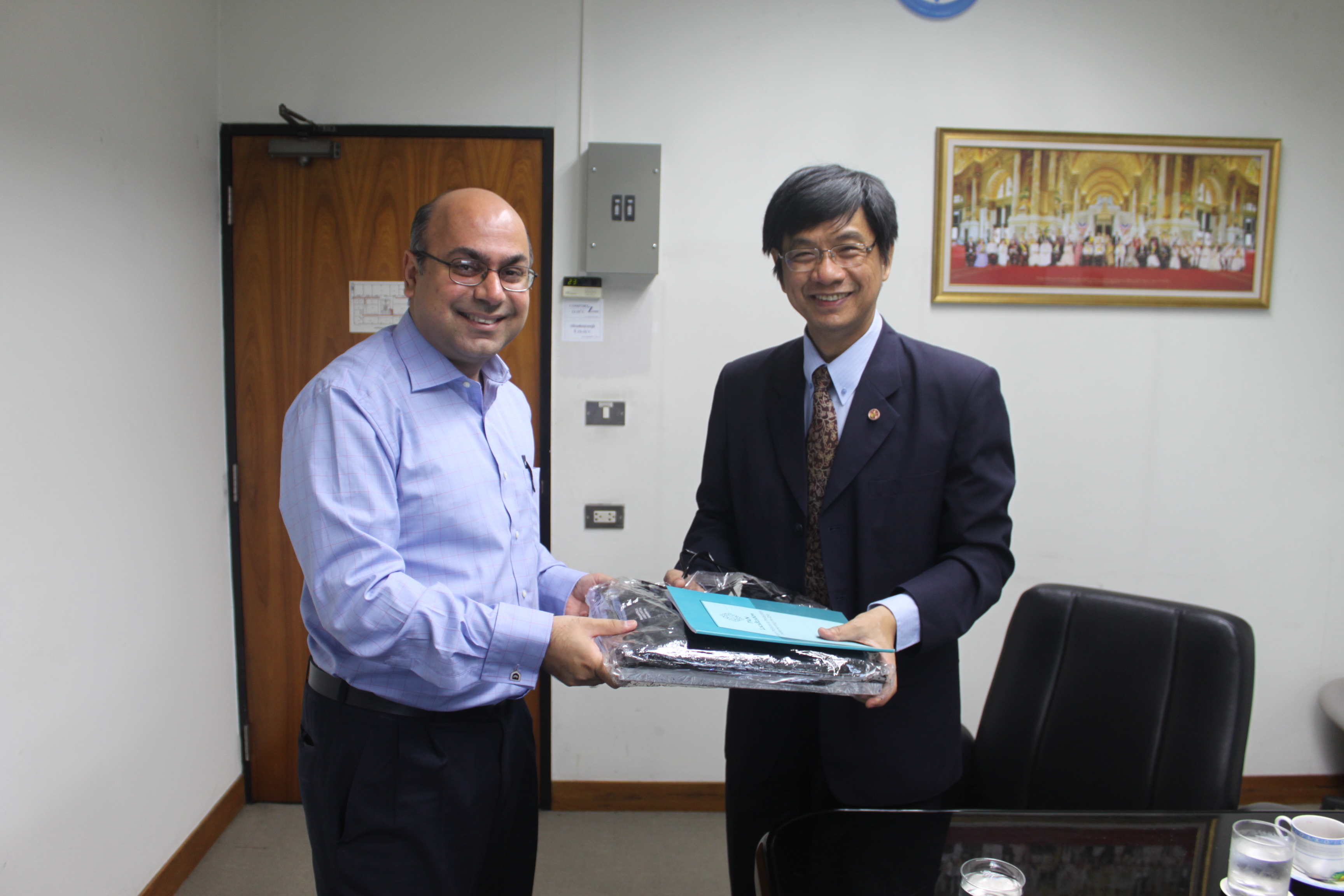| |
Date: 23rd July, 2010
Time: 9.00am - 11.00am
Venue: Room#702, 7th Floor, National Science and Technology Development Agency (NSTDA.) , Yothi Campus 73 / 1 Rama 6 Road, Phayathai Rd, Bangkok 10400.
Participants: Dr. Thaweesak Koanantakool, Dr. Chai Wutiwiwatchai , Dr. Thatsanee Charoenporn, Mr. Wasin Sinthupinyo, Dr.Sarmad Hussain and team
PAN Localization project of International Development Research Center (IDRC) has been able to do significant capacity and technology development in partner countries over past seven years, since 2003, and there has been policy impact, which has triggered sustainable work in many countries. NECTEC has played a central role in helping the project achieve its goals. The support from NECTEC has included the following:
a. Providing trainers for training and workshops organized by PAN Localization project
b. Providing training of PAN Localization partners through ADD training program
c. Providing direct longer term training of PAN Localization partners at NECTEC in the areas of TTS and OCR
d. Support over email for general guidance
Many of these partnerships have now been formalized into independent bilateral agreements between Govt. of Thailand and other partner countries, including Bhutan and Laos, and other partnerships, e.g. for WordNet with Mongolia.
Dr. Sarmad Hussain, Project Leader of PAN Localization project attended the meeting with NECTEC staff in order to thank for their support and discuss future prospects and collaborations. During the meeting Dr. Sarmad discussed with NECTEC team the possibility to sustain the partnerships developed through PAN Localization project in the Asian region, by developing a PAN Localization network. This network will welcome all partners from Asia to join and form an R&D group. To sustain the group, they proposed and discussed the possibility of each member organization to contribute 1-2 researchers to do joint projects, which may be increased in case more funding is raised. They have also planned to start a discussion around with other partners and potential groups. The PAN Localization network will work on developing parallel linguistic resources and common technology frameworks for language/speech/script processing. This network will also talk with funding organizations for at least minimal support to sustain the network for a few years.
Dr. Sarmad also discussed the possibility of bilateral cooperation between Center for Language Engineering (CLE-KICS, UET, Pakistan) and relevant lab(s) at NECTEC, for work in speech/language/script processing.
They have also agreed to follow up on these possibilities and perhaps finalized it through MOUs for PAN Localization network at the next regional meeting being organized later in the year.
In the end Dr. Sarmad Hussain presented the souvenirs to NECTEC team members as token of appreciation for their support and cooperation.
|



